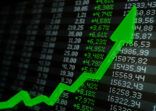Only 13 of 87 global fixed income funds available for sale in Hong Kong were positive in calendar year 2018, according to FE data.
The category as a whole — global fixed interest authorised in Hong Kong — was down 2.67%.
Additionally, two key bond indices were negative for the year. The JP Morgan Global Government Bond Index fell 0.66% and the Bloomberg Barclays Global Aggregate dropped 1.2%
In the Hong Kong universe, the best performing global fixed income fund was the JP Morgan Global Government Bond Fund, up 2%.
Best performing fixed income funds 2018 – Hong Kong

About 37% of the fund is allocated to Japan bonds, which represents an 18% overweight vs the benchmark, according to the factsheet from 30 November 2018.
Although the top holding is US treasuries (4.9%), the US only represents 8.9% of the portfolio, which is a 32% underweight vs the benchmark.
Roughly 40% of the portfolio holds A rated bonds and AA rated make up another 33%.
The worst performer in 2018 was the ICBC Global Total Return Bond Fund, reflecting the weak investor sentiment for China: The top ten holdings, which represent 67% of the fund, are mainly China corporate and bank bonds.
Worst performing global fixed income 2018 – Hong Kong

Singapore universe fixed income
In Singapore, authorised global fixed income funds had more extreme outperformance than Hong Kong. The best performer, the H2O Multibonds Fund, was the highlight with a 25.8% return for the calendar year.
The multi-currency fund invests in cash and money market products (37%) and cash bonds excluding repos (63%).
This particular fund, denominated in euros, has been number one in the sector over multiple periods, both cumulative and calendar year, according to data from FE, which gives it a four crown rating.
Backed by Natixis Investment Managers, H2O Asset Management’s fund was number one out of 168 funds in its category in 2018.
Best performing global fixed income 2018 – Singapore

Worst performing global fixed income 2018 – Singapore

Fixed income alpha in 2019
Central banks in the US and Europe have been moving to end quantitative easing policies, which gradually withdraws liquidity from the market.
Therefore, this year fixed income managers will likely scrutinize sectors and individual issuer creditworthiness more carefully than previously.
It’s the year for alpha, not beta, Hermes Investment Management pointed out in its global outlook report.
The firm believes that European and emerging credit now look attractive versus US credit, “especially taking into account the better average credit quality and draconian hedging costs facing international buyers of US assets.
“Better risk adjusted returns in investment grade and the higher rated segment of high yield are now available, as interest rates and sovereign volatility have caused underperformance this year that is unlikely to continue.”
Nikko Asset Managment, in its global outlook, said it plans to reduce “rising stars” and high yield positions, resulting in an underweight of the auto and industrial sectors. It also plans to “stay cautious” with credit exposure to Italy and the UK.
“Out of the last seven years, six (except for 2016) have seen more rising stars than fallen angels. We view it as prudent to take profit and focus on the identification of fallen angels, rather than rising stars.”
In the US, Nikko pointed out that US corporate leverage is now at a record $9trn. However, the firm believes “corporate revenues have never been stronger.
“We think this provides an opportunity to add to credit risk as spreads have now approached levels commensurate with positive long-term excess returns.”
This year, the firm is monitoring input price inflation, liquidity and finance costs, according to the report.
The US-China trade war is a risk. If the US continues to impose tariffs, inflation will result, which could prompt the US Federal Reserve to speed up interest rate hikes. Corporations would then face higher finance costs and lower profits due to import tariffs.
“In order to be sure-footed in 2019, we will shorten our investment horizon from 12 to three months and become, like the Fed, more data dependent,” the report said.

















